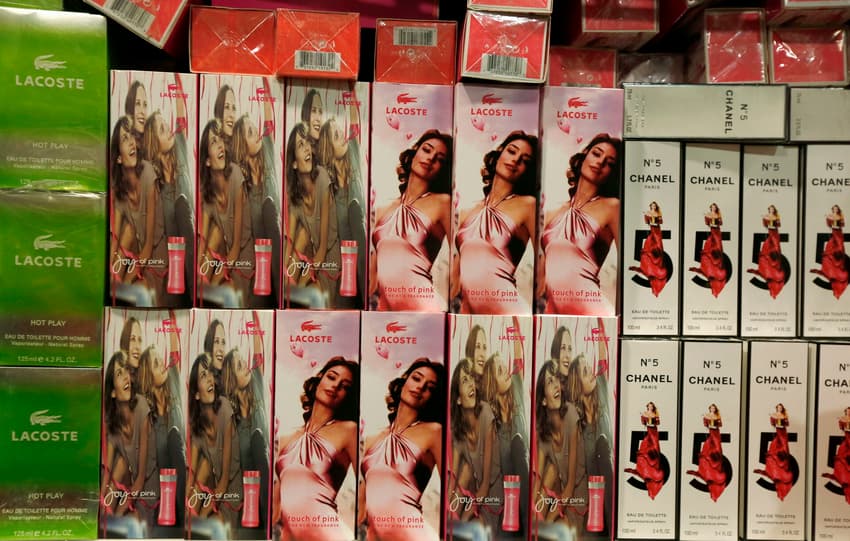Does Denmark have a problem with fake products?

More counterfeit products are purchased by young people on average in Denmark than in the rest of the EU, according to a national agency.
A study by the Danish Patent and Trademark Office found that a significant number of young people purchase counterfeit goods for prices considerably lower than their genuine equivalents.
Almost one in three young Danes has intentionally purchased fake goods, the agency said.
Using the example of a Gucci bag priced at 100 kroner, the agency warns that “if it sounds too good to be true, then it probably is”, in a press statement released on Monday.
The proportion of young Danes using the market for fake goods is higher than the EU average, a recent report from EU copyright organisation EUIPO states.
The Danish patent office calls the trend concerning and says that there are more risks than meet the eye involved in buying counterfeit.
“They risk subjecting themselves to health and safety dangers,” section manager Barbara Suhr Jensen said in the statement.
“We know that fake cosmetics can contain hazardous substances and that fake electronics can risk catching fire,” she said.
Products commonly sought out in counterfeit form can include clothes, shoes, cosmetics and electronics. Luxury items in each category are the ones that are primarily copied and sold.
But it is not just physical dangers which can result from the items, Jensen warned.
Organised crime groups are often behind counterfeit goods trade, she said meaning profits could be funnelled into narcotics, weapons or people smuggling, she said.
Some 77 percent of respondents to the agency’s survey said they were aware that they risked supporting organised crime by buying counterfeit.
Over half of the young Danes aged 15-24 in the survey said they viewed it as being okay to buy forged goods if the price of the genuine item is too high.
Consumers who want to avoid unintentionally buying counterfeit items should be alert to telltale signs such as spelling and grammar errors on websites, Jensen said.
In additional to improbably low prices, weird price amounts can also be a giveaway sign that the products on sale are not genuine, she said.
Comments (1)
See Also
A study by the Danish Patent and Trademark Office found that a significant number of young people purchase counterfeit goods for prices considerably lower than their genuine equivalents.
Almost one in three young Danes has intentionally purchased fake goods, the agency said.
Using the example of a Gucci bag priced at 100 kroner, the agency warns that “if it sounds too good to be true, then it probably is”, in a press statement released on Monday.
The proportion of young Danes using the market for fake goods is higher than the EU average, a recent report from EU copyright organisation EUIPO states.
The Danish patent office calls the trend concerning and says that there are more risks than meet the eye involved in buying counterfeit.
“They risk subjecting themselves to health and safety dangers,” section manager Barbara Suhr Jensen said in the statement.
“We know that fake cosmetics can contain hazardous substances and that fake electronics can risk catching fire,” she said.
Products commonly sought out in counterfeit form can include clothes, shoes, cosmetics and electronics. Luxury items in each category are the ones that are primarily copied and sold.
But it is not just physical dangers which can result from the items, Jensen warned.
Organised crime groups are often behind counterfeit goods trade, she said meaning profits could be funnelled into narcotics, weapons or people smuggling, she said.
Some 77 percent of respondents to the agency’s survey said they were aware that they risked supporting organised crime by buying counterfeit.
Over half of the young Danes aged 15-24 in the survey said they viewed it as being okay to buy forged goods if the price of the genuine item is too high.
Consumers who want to avoid unintentionally buying counterfeit items should be alert to telltale signs such as spelling and grammar errors on websites, Jensen said.
In additional to improbably low prices, weird price amounts can also be a giveaway sign that the products on sale are not genuine, she said.
Join the conversation in our comments section below. Share your own views and experience and if you have a question or suggestion for our journalists then email us at [email protected].
Please keep comments civil, constructive and on topic – and make sure to read our terms of use before getting involved.
Please log in here to leave a comment.